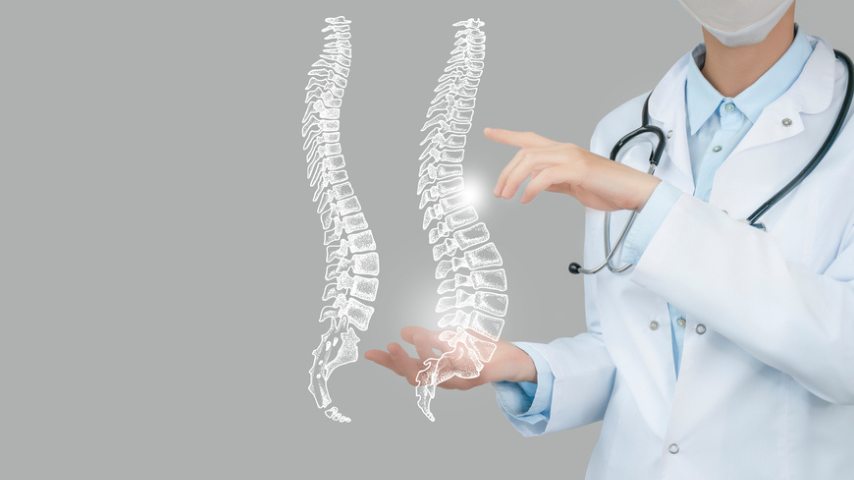Deciphering Complex Spine Surgeries: A Comprehensive Guide

Complex spine surgeries represent a pinnacle of modern medical innovation, offering hope and relief to individuals grappling with debilitating spinal conditions. From intricate spinal deformity corrections to delicate tumor resections, these procedures require precision, expertise, and meticulous planning. In this extensive exploration, we'll unravel the nuances of complex spine surgeries, accompanied by insights from Dr Lakshman, an esteemed Senior Consultant in Spine Surgery. Let's embark on a journey to navigate the complexities of spine surgeries and empower patients with knowledge and understanding.
Dr Lakshman I K, an expert spine surgeon, underlines the significance of informed decision-making in complex spine surgeries, stating, "Complex spine surgeries demand a collaborative approach between patients, surgeons, and healthcare teams. By understanding the intricacies of the procedure and actively participating in the treatment journey, patients can navigate complex spine surgeries with confidence and optimism."
Understanding Complex Spine Surgeries:
Complex spine surgeries encompass a diverse array of procedures aimed at addressing intricate spinal pathologies, including spinal deformities, tumors, trauma, infections, and degenerative conditions. These surgeries often involve intricate maneuvers and may require access to multiple levels of the spine, necessitating specialized expertise and advanced surgical techniques.
Indications for Complex Spine Surgeries:
Complex spine surgeries are typically indicated for patients with severe spinal conditions that significantly impact mobility, function, and quality of life. Common indications include:
- Severe spinal deformities such as scoliosis, kyphosis, or spondylolisthesis
- Spinal tumors or metastatic lesions requiring surgical resection or stabilization
- Spinal trauma resulting in spinal cord injury, fractures, or instability
- Complex revision surgeries to address failed previous spinal procedures or complications
- Degenerative spinal conditions refractory to conservative treatments, causing chronic pain and neurological deficits
Types of Complex Spine Surgeries:
- Spinal Deformity Correction: Complex spine surgeries may involve correcting spinal deformities such as scoliosis or kyphosis through spinal realignment, fusion, or osteotomies. These procedures aim to restore spinal balance, alleviate pain, and prevent further progression of deformity.
- Tumor Resection: Surgical resection of spinal tumors, whether primary or metastatic, requires meticulous planning and precision to achieve complete tumor removal while preserving neurological function and spinal stability. This may involve en bloc resection, decompression, and spinal reconstruction.
- Spinal Fusion and Instrumentation: Spinal fusion surgeries involve fusing two or more vertebrae together using bone grafts and implants to stabilize the spine and alleviate pain. Complex instrumentation techniques may be employed to achieve spinal alignment and fusion in challenging cases.
- Minimally Invasive Spine Surgery: Minimally invasive techniques may be utilized in complex spine surgeries to reduce tissue trauma, minimize blood loss, and expedite recovery. These techniques may include minimally invasive decompression, fusion, or tumor resection approaches.
- Revision Spine Surgery: Revision spine surgery involves correcting complications or failures of previous spinal procedures, such as pseudarthrosis, hardware failure, or adjacent segment disease. These surgeries require careful assessment, planning, and execution to achieve successful outcomes.
Patient Considerations and Expectations:
Patients undergoing complex spine surgeries should be prepared for a comprehensive pre-operative evaluation, including medical history assessment, imaging studies, and consultations with multidisciplinary specialists. It's essential to discuss treatment goals, potential risks, and expected outcomes with the surgical team and actively participate in the decision-making process. Post-operative recovery and rehabilitation are integral components of complex spine surgeries, requiring patience, commitment, and adherence to post-operative instructions for optimal recovery and long-term success.
Conclusion:
Complex spine surgeries represent a cornerstone of modern spinal care, offering hope and relief to individuals facing challenging spinal conditions. By understanding the indications, types, and considerations of complex spine surgeries, patients can make informed decisions and actively participate in their treatment journey. With the expertise of skilled spine surgeons like Dr. Lakshman I K and advancements in surgical techniques, complex spine surgeries continue to evolve, providing patients with the opportunity to regain mobility, function, and quality of life. Through collaboration, compassion, and dedication to excellence, the future of complex spine surgeries holds promise for transformative outcomes and improved patient well-being.
Specialities
Clear allMeet the doctor

Dr Lakshman I K
Neuro and Spine Surgery
MBBS, MS (Gen Surgery), MCh (Neurosurgery)











